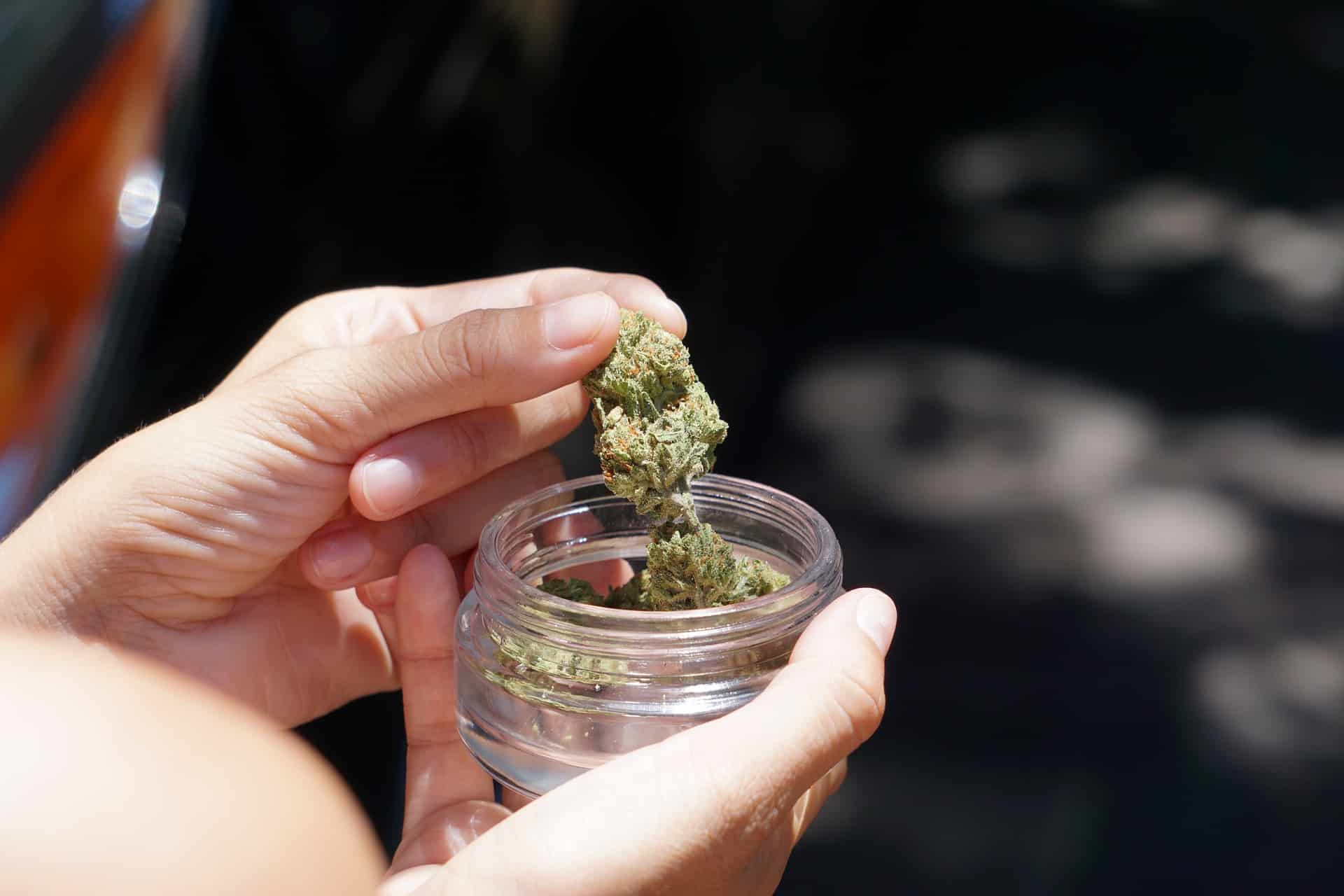How Long Does Marijuana Stay in Your System
by Haley Mills · December 12, 2022
Wondering how long marijuana stays in your system? Find out here! Discover the duration of marijuana’s effects and learn how you can rid your body of the substance more quickly.

A blog post about how long marijuana stays in your system. Find out how long marijuana stays in your system and how it can affect your body.
The effects of marijuana may not be long-lasting, but it can be detected in the body for days and even several weeks in some cases. The amount of time cannabis remains in the system will depend on how often and how much marijuana the person uses as well as genetic and health factors.
The Effects of Marijuana
The effects of cannabis vary from person to person, depending on an individual’s biology and cannabinoid receptor type. Not everyone experiences the same results when consuming cannabinoids, and the intensity of those effects also varies. Some people feel relaxed and happy after cannabinoid consumption, while others may feel sleepy or tired. That can depend on the strain as well.
It is important to remember that marijuana use should be approached cautiously, as it can have adverse side effects, especially when consumed in high doses. If you are trying cannabis or its cannabinoid chemicals, it is best to speak with a healthcare professional who can help you determine which strain and dosage would be best for you.
When recreationally, cannabis can produce euphoria, relaxation, and altered sensory perception. Some cannabinoids are more likely to cause these effects than others. THC is most likely to cause euphoria, relaxation, and increased appetite. CBD is often the choice for people looking to manage chronic pain, nausea, anxiety, and depression without the psychoactive effects brought on by THC.
How does the body process marijuana?
Once you consume cannabis, the body’s endocannabinoid system (ECS) takes care of the rest. The endocannabinoid system is an extensive network of chemical signals and cellular receptors densely packed throughout our brains and bodies.
The “cannabinoid” receptors in the brain — the CB1 receptors — regulate the body through immediate feedback, turning up or down the movement of whichever system needs to be adjusted, whether hunger, temperature, or alertness. Our bodies naturally produce endocannabinoids to stimulate these receptors, which are similar to molecules in the cannabis plant.
The endocannabinoid system regulates learning and memory, emotional processing, sleep, temperature control, pain control, inflammatory and immune responses, and eating. This vital system is currently at the center of renewed international research and drug development.
THC is a sticky, easily vaporized compound that dissolves into fatty tissue like the liver, lungs, and spleen. The liver metabolizes THC into an inactive compound (THCCOOH). There are two enzymes responsible for THC metabolism, and it can depend on your genetic background. This means that some people may metabolize marijuana more quickly than others.
How long does marijuana stay in the system?
A 2017 study estimated a three-day detection window for one marijuana joint, but it greatly varies depending on the person.
The results showed:
- For first-time cannabis smokers, drug tests may detect marijuana for about three days.
- The detection window is five to seven days for a person who uses marijuana three or four times per week.
- For those who use cannabis daily, drug tests may detect it in their system for thirty days or more.
How long does THC stay in system vs. CBD?
The two most common types of cannabinoids are tetrahydrocannabinol (THC) and cannabidiol (CBD).
THC is broken down in the body and modified into molecules called metabolites. Approximately eighty metabolites are formed from THC and may affect the body’s endocannabinoid system. These metabolites are stored in our body fat and are gradually eliminated through our waste. THC metabolites have an elimination half-life ranging from twenty hours to thirteen days or more.
CBD is similar to THC and can stay in your system for about eight to twelve days. However, most drug panels are not looking for this cannabinoid. Research shows that After four to five half-lives pass, the plasma levels of CBD are lower than a relevant concentration and considered eliminated.
Factors of Detection
The following factors may affect the amount of time marijuana stays in the system. The list includes:
Body Mass Index (BMI) – The more fat cells you have, the longer marijuana will stay in your system, stored in fatty tissues.
Consumption method– The form of marijuana consumption impacts the time it’s detectable. If you smoke weed, THC levels in the body drop faster than ingesting marijuana orally.
Exercise – Those who exercise regularly will notice that THC leaves their body faster. It’s important to note that working out right before a drug screen can pull out older THC traces and cause a positive result.
Frequency and Quantity of use – How often you use marijuana, how much you use it, and how long you have been using will all affect the amount of time it stays around.
Metabolism – People with faster metabolisms will rid cannabis from their bodies more quickly
Sex – Women usually have higher body fat levels than men, so they often can metabolize THC at a slower pace.
Types of Drug Tests
The most common workplace drug testing types are:
Urine test
Urine is the most common and is used by the U.S. Department of Transportation for regulated drug tests. A standard 5-panel drug test is a prominent urine test option for many companies and organizations. It typically screens for the “NIDA 5,” NIDA is an acronym for the National Institute on Drug Abuse. A 5-panel test will check for the use of marijuana, cocaine, amphetamines, opiates, and phencyclidine (PCP).
Hair test
In hair tests, hair follicles are removed from the body and lab-tested for marijuana. The 2017 Drug and Alcohol Review study shows that hair tests are a good indicator of daily marijuana use within three months. However, they cannot reliably show how frequently a person uses cannabis.
Saliva test
Saliva tests are cheap to buy and show immediate results. A swab is taken from your mouth to test oral fluid for cannabis use within a three to forty-eight hours window.
Blood test
The detection window for a marijuana blood tests is relatively short. Blood tests accurately detect THC levels in the bloodstream for up to two days after consumption. As with the other types of drug tests, THC may be detectable in the blood of chronic users for longer.
False Positives
Many workplaces utilize random drug testing, which often involves screening bodily fluids or hair samples. Certain anti-inflammatory prescription drugs, such as ibuprofen, have caused false positive tests. However, most typical drug tests will not have this issue and you will only test positive if you have used recently.
Marijuana Detection Window
- Urine tests can detect illicit substances for up to ten days. Marijuana is the exception as it can stay in the body for up to thirty days, especially if you are a regular user.
- Blood testing is a more expensive option and can only detect drugs for up to a few hours.
- A saliva test is the less invasive option and has a detection period of no more than twenty-one hours.
- Hair follicle drug test kits are the least common but can go back the farthest, up to ninety days for drugs and alcohol.
THC Detox Methods
Essentially, a detox cleanses the body of THC. The human body can naturally flush THC from its system by ceasing use for some time. However, there are ways to speed up the process. Depending on usage and genetic factors, the marijuana detox process can vary in difficulty. The cannabis detox process may present minor adverse symptoms for daily consumers, including irritability, headaches, anxiety, depression, insomnia, and appetite suppression.
THC detox drinks
A detox drink is typically a liquid herbal supplement that helps the urinary, circulatory, and digestive systems remove toxins. It is a healthy way to cleanse your body while also receiving essential nutrients.
After taking this THC detox solution, you will want to urinate as many times as possible during the five hours. Usually, eating and drinking within that time is not suggested.
Weed detox pills
One of the best THC detox solutions to pass marijuana drug tests is detox pills. Two of the best THC detox pills out there are:
- Nutra Cleanse Natural Supplements
- TestClear Toxin Rid 7-Day Pills
THC detox kit
Many companies sell THC detox kits, usually containing pills and liquid that work together to rid your system of the drug. They are typically expensive and require a few days and some serious water intake to fully work on a drug test.
Hair Shampoo
This product can help cleanse the hair follicles before a drug test. The best brands will seem like regular shampoo that can strip metabolites and work quickly without damaging the hair.
Three of the best brands of THC detox solutions for your hair:
- Old Style Aloe Toxin Rid
- Rescue Hair Detox Shampoo
- Dr. Greens Wash Away Shampoo
Mouthwash
You can effectively get through an oral drug test with the help of a good mouthwash. One of the best products is Toxin Rid Detox Mouthwash, which can help cleanse you of any THC traces without harming your mouth. Its unique formulation helps eliminate evidence of drug use right before a drug test occurs.
Remember that this method is only to be used fifteen minutes before a drug test; otherwise, it may not work.
Can you withdraw from cannabis?
Heavy, regular marijuana use can lead to the development of a problem with the drug, known as a marijuana use disorder. According to recent studies, thirty percent of marijuana users may have some form of marijuana use disorder. Marijuana users under 18 are four to seven times more likely than adults to develop a marijuana use problem.
Cannabis use can occasionally link to dependence, which occurs when a person has withdrawal symptoms after they stop using the drug. These symptoms typically peak within the first week after quitting and last up to two weeks.
The Takeaway
Cannabis can stay in a person’s body for several days or weeks, depending on many factors. A regular cannabis user can expect to wait for the longest before their system is clear of marijuana traces. Heavy users may even experience a more difficult detox process. Predicting how long weed will stay in your system is challenging, so it’s best to give yourself plenty of time ahead of an anticipated drug screening.
Last Updated: August 8, 2024
Get Approved for Your Medical Marijuana Card in Minutes!

Get Your Medical Card
Connect with a licensed physician online in minutes

Like This Article?
Share with your friends
Table of Contents
Keep Reading
-
4 Steps to Obtain Your Medical Marijuanas MD Card Easily
Easily obtain your medical marijuanas MD card with our straightforward four-step guide.
-
9 Essential THC Potency Calculators for Accurate Dosing
Discover 9 essential THC potency calculators for precise dosing and safer cannabis consumption.
-
How to Connect with Medical Marijuana Doctors Online in PA
Connect with medical marijuanas doctors online PA for consultations and access to therapeutic cannabis.



